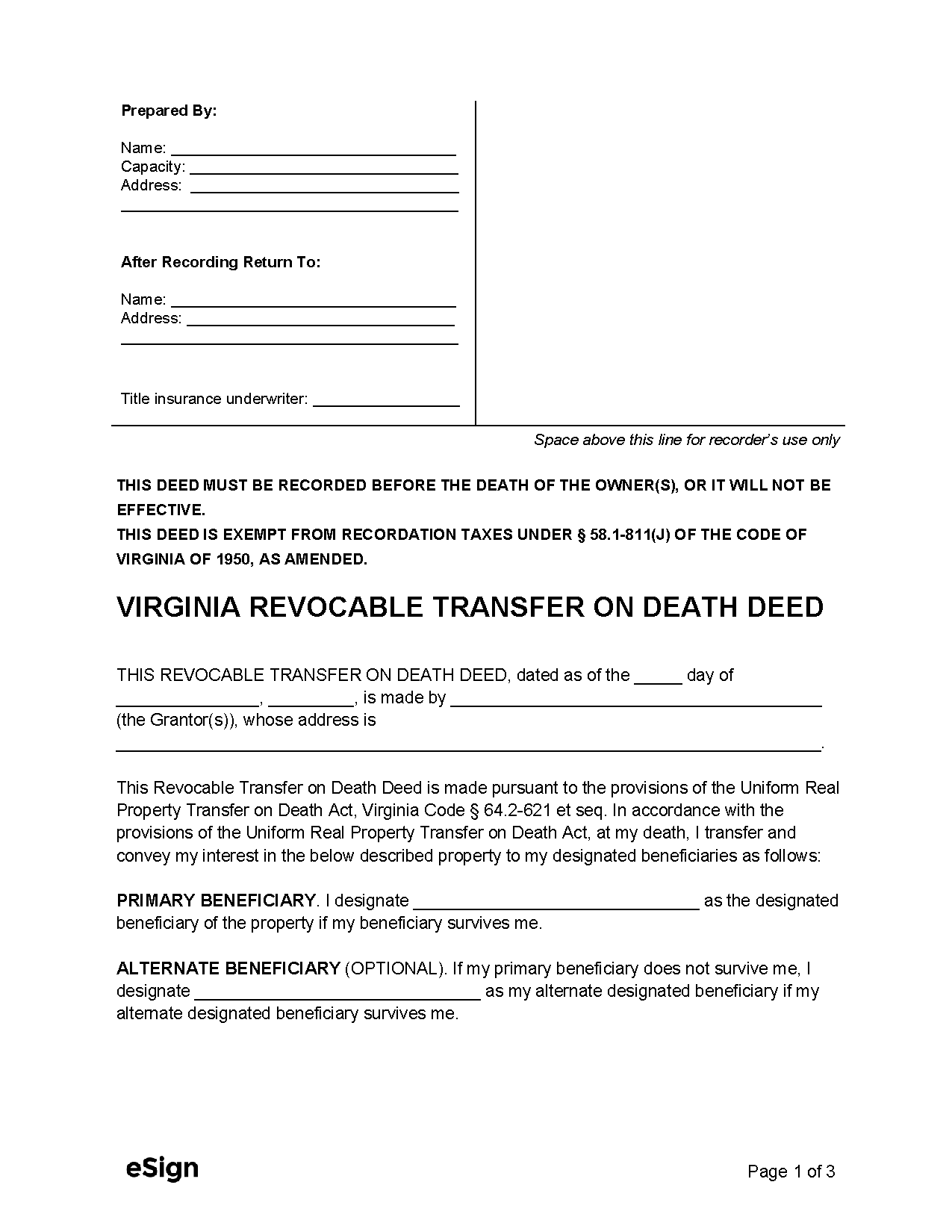Revocation of Transfer on Death Deed – Allows a transfer on death deed to be revoked.
Recording and Resources
Formatting
Deed formatting standards are set at the county level. Filers can verify requirements at their local office.
Signing and Recording
- Signing Requirements: Notarization[1]
- Where to Record: Circuit Court Clerk[2]
- Recording fees: $18 for 10 pages or less (as of this writing)[3]
Resources
TOD Deed Preview
Court clerks may require a cover sheet when recording a TOD deed. The sheet can be obtained via the Virginia Land Record Cover Sheet Generator (the property’s county can be selected in the drop-down menu).[4] Fairfax County filers should use their specific Coversheet Generator instead.
